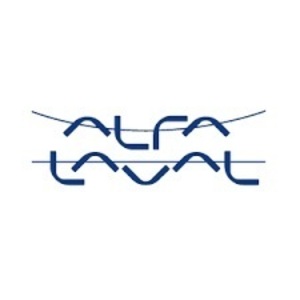Alfa Laval launches biofuel-ready separators for marine industry

January 25, 2023
BY Alfa Laval
Biofuels are a current and accessible fuel option that can help marine customers decarbonize. Yet while biofuels reduce CO2 footprint, they also pose new operational challenges. Alfa Laval is first in the market to address them with biofuel-optimized separators and separator upgrades.
Assured compatibility with prominent biofuels
Biofuels like HVO (hydrotreated vegetable oil) and FAME (fatty acid methyl ester) can be used by diesel engines without major engine modifications. They can be a carbon-neutral alternative if produced from the right biomass, but they must still be cleaned effectively to prevent performance issues and expensive engine wear. In a marine industry first, Alfa Laval high-speed separators are now compatible with HVO (EN15940) and with FAME (EN14214 or ASTM D6751) blends comprising residual fuel and/or distillate.
Advertisement
Advertisement
“We are proud to support our customers’ decarbonization journey, no matter which fuel path they take,” says Markus Hoffmann, global sales manager, marine separation and heat transfer equipment, Alfa Laval. “Biofuels will be the choice for many marine vessels, but customers must be certain that their equipment is prepared for them. With biofuel-ready separators and cost-efficient biofuel upgrades, Alfa Laval can provide that certainty.”
Prepared for biofuel complexity
Biofuels are already in widespread use, and ISO is looking to incorporate them into the 2024 revision of ISO 8217. Nevertheless, they can be prepared in various ways and differ widely in their characteristics – both from conventional fuels and from each other. Because of differences in density, moisture absorption and more, they demand additional care when it comes to fuel storage and treatment.
Advertisement
Advertisement
To ensure optimal biofuel separation, Alfa Laval has modified both internal bowl components and the separator software. This makes setting up for HVO, FAME blends or conventional fuels a simple parameter change. Incorporated into new Alfa Laval separators for purchase, the developments are also available as upgrades for existing separators.
“Optimizing for biofuels is nothing that occurs overnight,” says Hoffmann. “Our biofuel-ready separators build on deep fuel insights, extensive research at the Alfa Laval Test & Training Centre and long cooperation with ISO and CIMAC. As biofuels continue to evolve, customers can count on Alfa Laval for efficient engine protection, just as they have with conventional marine fuels.”
To learn more about biofuel-ready separators and Alfa Laval’s approach to biofuels, please visit: www.alfalaval.com/marinebiofuel
Related Stories
Bangkok Airways Public Company Limited has officially announced the adoption of sustainable aviation fuel (SAF) on its commercial flights, reinforcing Thailand’s green aviation industry. The initiative took effect starting July 1, 2025.
Avalon Energy Group LLC and Sulzer Chemtech have signed a strategic alliance and partnership agreement to scale up the production of SAF. Under the agreement, Avalon has selected BioFlux technology for its portfolio of SAF projects.
Neste and DHL Express have strengthened their collaboration with the supply of 7,400 tons (9.5 million liters) of neat, i.e. unblended, Neste MY Sustainable Aviation Fuel to DHL Express at Singapore Changi Airport starting July 2025.
CoBank’s latest quarterly research report, released July 10, highlights current uncertainty around the implementation of three biofuel policies, RFS RVOs, small refinery exemptions (SREs) and the 45Z clean fuels production tax credit.
The U.S. Energy Information Administration maintained its forecast for 2025 and 2026 biodiesel, renewable diesel and sustainable aviation fuel (SAF) production in its latest Short-Term Energy Outlook, released July 8.
Upcoming Events










